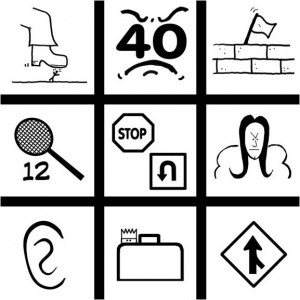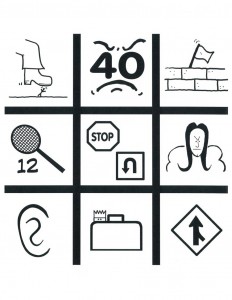 The time of the Judges was rife with struggle and pain, but a love story bloomed in the middle of the difficult time. The book of Ruth tells of a woman named Naomi who ran. Naomi was angry at God because He allowed her husband and sons to die. God revealed His love to Naomi through her daughter-in-law, Ruth. She stayed with Naomi during her anger and depression. As Naomi’s faith began to return, she became a matchmaker by setting Ruth up with an older man of faith named Boaz. This couple became ancestors of the Final Forgiver, the Messiah. Naomi’s trust in God was restored. The book of Ruth ends with Naomi returning to God as her forgiver and leader.
The time of the Judges was rife with struggle and pain, but a love story bloomed in the middle of the difficult time. The book of Ruth tells of a woman named Naomi who ran. Naomi was angry at God because He allowed her husband and sons to die. God revealed His love to Naomi through her daughter-in-law, Ruth. She stayed with Naomi during her anger and depression. As Naomi’s faith began to return, she became a matchmaker by setting Ruth up with an older man of faith named Boaz. This couple became ancestors of the Final Forgiver, the Messiah. Naomi’s trust in God was restored. The book of Ruth ends with Naomi returning to God as her forgiver and leader.
If the Judges couldn’t get the people to return to God, maybe the Prophets could. Hannah, a barren woman living during this time, prayed to become a mother. God listened and gave her a son. She raised him to be a prophet of God under a priest named Eli. Though he was an official priest of the Lord, the greedy Eli and his sons had been defiant for years, and the pattern of disobedience had made him deaf to God’s direction and will.
Samuel was able to hear God, and received a message for Eli. Samuel said that Eli and his family were in great danger. Samuel grew up and helped people return to God by admitting their selfishness and ingratitude.
Yet the people decided that they needed a king like the other nations, instead of trusting God. God said, “Bad idea! Kings take your money, your sons, and your daughters. They tax you to death. They take away your property rights. Kings take what’s ‘yours’ and make it ‘theirs.’” God warned them of the dangers of bloated monarchies and centrally controlled governments, saying, “Return to Me and let Me be your King.” They refused to hear God’s warning and said, “We want a king anyway.” So God told Samuel to anoint the first king – a handsome man named Saul.
 As the nation gathered to inaugurate the monarch, he couldn’t be found. They eventually discovered their new king hiding behind the luggage! Saul was a humble man who didn’t want the limelight. He began his reign with grace and wisdom. Many of the citizens weren’t sure what to make of this reserved leader. As they headed out to the first battle, many refused to follow his command. The group that joined Saul in battle came back victorious. Saul called an all-nation meeting. The soldiers who battled wanted Saul to kill the cowards who stayed behind. Saul used this first act of leadership to reconcile His people and brought them together.
As the nation gathered to inaugurate the monarch, he couldn’t be found. They eventually discovered their new king hiding behind the luggage! Saul was a humble man who didn’t want the limelight. He began his reign with grace and wisdom. Many of the citizens weren’t sure what to make of this reserved leader. As they headed out to the first battle, many refused to follow his command. The group that joined Saul in battle came back victorious. Saul called an all-nation meeting. The soldiers who battled wanted Saul to kill the cowards who stayed behind. Saul used this first act of leadership to reconcile His people and brought them together.
 So, at this critical juncture in Israel’s history, King Saul brought the people together to rejoice in God’s deliverance. This act of unity solidified his reign, proving his grace, humility, and courage as a king.
So, at this critical juncture in Israel’s history, King Saul brought the people together to rejoice in God’s deliverance. This act of unity solidified his reign, proving his grace, humility, and courage as a king.
At the moment when the people wanted to head in two different directions, Saul merged them into a common confidence in God’s deliverance. When they wanted to compare each other’s works, Saul pointed them all to the work of God. This was both the beginning and, sadly, the end of Saul’s faithfulness to God.
Here is a live teaching of Fast Track: Exodus – 1 Samuel
For a free session of Godonomics, visit: http://www.godonomics.com/watch-session-5

